

p.13, Figure 4
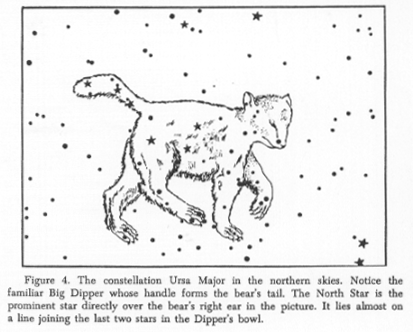
P.16, Figure 5
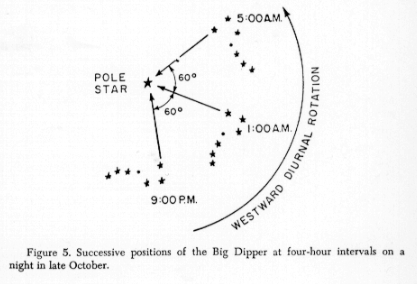
Astronomy is "probably the oldest science" according to some texts. What would be of equal or greater importance to early peoples?
How would you compare the study of astronomy to the study of weather?
Now break up into small groups and figure out the following question:
Give 2 similarities and 2 differences between astronomy and weather.
Meteorology is never called ``the oldest science" in books.
Why not?
A gnomon is a stick in the ground used to measure shadows.
P.9, Figure 1
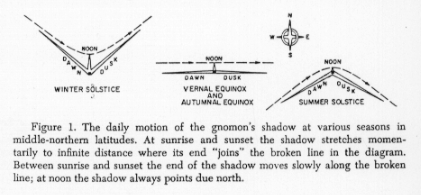
P.10, Figure 2
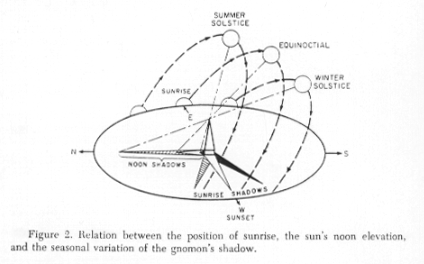
p.12, Figure 3
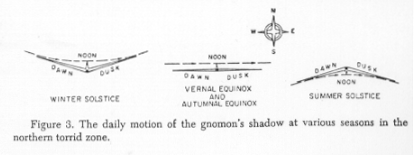
What could a gnomon tell you about the time of year?
Group exercise: Draw a picture of the pattern of shadows the gnomon casts on a winter day and on a summer day. When you're done, put it up on board so that we can make comparisons between your ideas about what a gnomon and its ability to measure time. What kind of a function do you think your curve is? Could you prove that?
Ask, how does this compare in accuracy with phases of the moon? (The moon only marks time if you know how many phases in a year.) How could you be sure your computation of the solstice is correct?
You can measure the year with pretty good accuracy. That is, you can say almost a year in advance when the next solstice will be. How does this compare with measuring weather? How far ahead can we predict weather today?